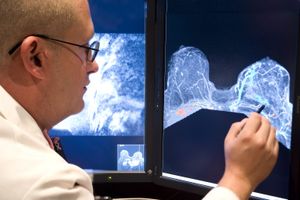
UTI Treatment Highland
UTI Treatment Highland Urinary Tract Infections (UTIs) are a common bacterial infection that affects millions of people worldwide. UTIs can occur in any part of the urinary system, including the bladder, kidneys, ureters, and urethra. Highland, a county in the north of Scotland, is no exception to this global trend. In this article, we will explore the best practices and recommendations for UTI treatment in Highland, taking into account the local healthcare system and cultural context.
What is UTI Treatment Highland:
UTI Treatment Highland The first step in UTI treatment is to confirm the diagnosis through a urine test. This can be done at a local clinic or hospital in Highland. The test will determine if bacteria are present in the urine and, if so, what type of bacteria is causing the infection. This information is essential for selecting the appropriate antibiotic treatment.
Antibiotic treatment is the most common and effective way to treat UTIs. In Highland, the National Health Service (NHS) provides free healthcare to all residents, including antibiotics. The NHS follows evidence-based guidelines for the treatment of UTIs, which include prescribing a short course of antibiotics, typically for three to five days. In some cases, a longer course may be necessary, depending on the severity of the infection and the patient's medical history.
It is essential to complete the full course of antibiotics prescribed by the healthcare provider. Stopping the treatment prematurely can lead to the recurrence of the infection, which can be more difficult to treat. Moreover, it can contribute to the development of antibiotic resistance, a growing global health concern.
What We Should Know About the UTI Treatment Highland:
In addition to antibiotics, patients can take over-the-counter pain relief medication, such as paracetamol or ibuprofen, to relieve the pain and discomfort associated with UTIs. Drinking plenty of fluids, particularly water, can also help flush out bacteria from the urinary system.
Prevention is key in reducing the incidence of UTIs. There are several measures that people in Highland can take to prevent UTIs from occurring in the first place. These include:
Drinking plenty of water and fluids to maintain good hydration
Urinating frequently, especially after sexual intercourse
Wiping from front to back after using the toilet to prevent bacteria from the anus from entering the urethra
Avoiding using harsh soaps or bubble baths in the genital area
Urinating immediately after sexual intercourse to flush out any bacteria that may have entered the urethra
For women, wearing cotton underwear and avoiding tight-fitting clothing can also help prevent UTIs. It is important to note that these preventive measures are not foolproof and that some people may still experience UTIs despite taking these precautions.
In Highland, as in many other parts of the world, there is a growing concern about antibiotic resistance. Antibiotic resistance occurs when bacteria become resistant to antibiotics, making infections more difficult to treat. One of the main drivers of antibiotic resistance is the overuse and misuse of antibiotics.
To address this issue, healthcare providers in Highland are encouraged to follow antimicrobial stewardship guidelines when prescribing antibiotics. These guidelines aim to promote the appropriate use of antibiotics to reduce the development of antibiotic resistance. Patients can also play a role in preventing antibiotic resistance by taking antibiotics only when prescribed by a healthcare provider and completing the full course of treatment.
In conclusion, UTIs are a common bacterial infection that affects people worldwide, including in Highland. The best practices and recommendations for UTI treatment in Highland include confirming the diagnosis through a urine test, prescribing a short course of antibiotics, completing the full course of treatment, taking pain relief medication if necessary, and following preventive measures to reduce the incidence of UTIs. It is also important to address the growing concern of antibiotic resistance by promoting the appropriate use of antibiotics through antimicrobial stewardship
UTI Treatment Highland How Its Work?
UTI (Urinary Tract Infection) treatment in Highland works through a combination of medical interventions and preventive measures. UTIs occur when bacteria enter the urinary tract and multiply, causing inflammation and infection. The following is an overview of how UTI treatment works in Highland:
Diagnosis: The first step in UTI treatment is to confirm the diagnosis through a urine test. This test will determine if bacteria are present in the urine and what type of bacteria is causing the infection. Based on the test results, healthcare providers can determine the appropriate antibiotic treatment.
Antibiotic Treatment: Antibiotics are the most common and effective way to treat UTIs. In Highland, the National Health Service (NHS) provides free healthcare to all residents, including antibiotics. The NHS follows evidence-based guidelines for the treatment of UTIs, which typically involve a short course of antibiotics, usually for three to five days. In some cases, a longer course of antibiotics may be necessary, depending on the severity of the infection and the patient's medical history. Antibiotic treatment aims to kill the bacteria causing the infection and prevent it from spreading to other parts of the urinary tract.
Pain Relief Medication: Over-the-counter pain relief medication, such as paracetamol or ibuprofen, can help relieve the pain and discomfort associated with UTIs.
Fluids: Drinking plenty of fluids, particularly water, can help flush out bacteria from the urinary system and speed up recovery.
Preventive Measures: Preventive measures can also be taken to reduce the incidence of UTIs. These include drinking plenty of water and fluids to maintain good hydration, urinating frequently, wiping from front to back after using the toilet, avoiding using harsh soaps or bubble baths in the genital area, and urinating immediately after sexual intercourse to flush out any bacteria that may have entered the urethra. For women, wearing cotton underwear and avoiding tight-fitting clothing can also help prevent UTIs.
It is essential to complete the full course of antibiotics prescribed by the healthcare provider. Stopping the treatment prematurely can lead to the recurrence of the infection, which can be more difficult to treat. Moreover, it can contribute to the development of antibiotic resistance, a growing global health concern.
Healthcare providers in Highland are encouraged to follow antimicrobial stewardship guidelines when prescribing antibiotics to address the issue of antibiotic resistance. Patients can also play a role in preventing antibiotic resistance by taking antibiotics only when prescribed by a healthcare provider and completing the full course of treatment.

If you want to get amazing benefits by using this link
Conclusion:
In conclusion, UTI treatment in Highland involves a combination of medical interventions and preventive measures. It aims to kill the bacteria causing the infection, relieve symptoms, and prevent the recurrence of the infection. Preventive measures can also be taken to reduce the incidence of UTIs. It is important to address the growing concern of antibiotic resistance by promoting the appropriate use of antibiotics through antimicrobial stewardship.
